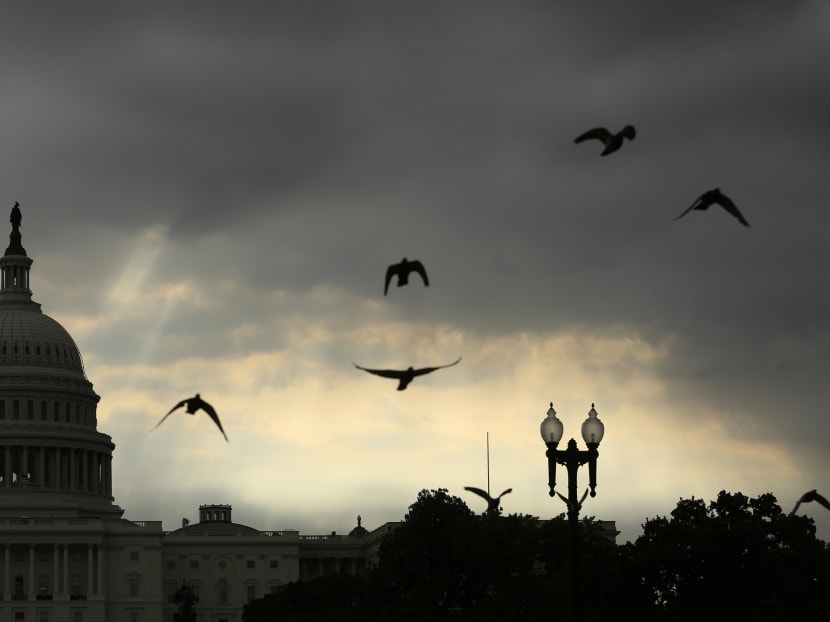An unfortunate twist in the US pivot
American President Barack Obama was due to tour Asia next week to attend two key multilateral summits and visit two other countries — Malaysia and the Philippines. The White House initially described this as an “on-going commitment”, building on the American pivot to emphasise ties with the region that the President established in his first term.
American President Barack Obama was due to tour Asia next week to attend two key multilateral summits and visit two other countries — Malaysia and the Philippines. The White House initially described this as an “on-going commitment”, building on the American pivot to emphasise ties with the region that the President established in his first term.
Events, however, have intervened. With the domestic debacle of the American government shutdown, reports are that the President’s trip might be cancelled or, at least, shortened. The Asia-Pacific Economic Cooperation (APEC) Summit in Bali and the East Asia Summit in Brunei are likely to remain on the agenda. But bilateral stops in Malaysia and the Philippines have been cut.
This will not be without costs.
Mr Obama’s pivot, after all, primarily gave a political reassurance that US commitment remains, despite the crisis and possible impact on the coffers. The actual number of troops deployed in Asia — despite past headlines about Marines near Darwin — was ancillary.
The government shutdown starkly reveals divisive and dysfunctional Beltway politics. If they can furlough jobs, cease government services and risk a downgrade in the country’s credit rating, will American politicians be consistent about faraway Asia?
THE NEW SUBTEXT
There is also Syria to show how the Middle East soaks up American time and attention. US Secretary of State John Kerry seems to be wading into Middle East issues — not only Syria, but also Iran and even Israeli-Palestinian peace. Many of these priorities were voiced by Mr Obama at the United Nations.
If he does come to Asia, the President’s speeches will no doubt shift emphasis. But a subtext has emerged to question if the pivot will be sustained in his second term. And even if sustained, American engagement may no longer be as welcome.
Take the administration’s centrepiece for trade and economic ties, the Trans-Pacific Partnership agreement. Over the past months, American negotiators have pushed hard for Asians to cough up “deliverables” that suit US interests. Resistance has grown, rather than any sense of partnership.
This is a sharp contrast to China, which has not backed down on claims in the South China Sea, but nevertheless has adjusted its diplomacy.
With Foreign Minister Wang Yi smiling benignly, Beijing is calmly laying down a 10-year strategy for engagement.
Alongside the US$500 million (S$625 million) China-ASEAN Maritime Fund and US$50 billion Asian Infrastructure Fund, an upgrade to the China-ASEAN Free Trade Agreement seems likely, with new Chinese concessions to benefit its South-east Asian neighbours.
Malaysia, despite having overlapping claims with China to parts of the South China Sea, will roll out the red carpet for President Xi Jinping. His three-day state visit this week is expected to usher in a new era in ties between the two countries.
This makes a sharp contrast to Mr Obama’s reported decision to cancel, especially as no incumbent US President has been to Malaysia since Lyndon B Johnson during the Vietnam War.
KILL THE CHICKEN
The Philippines, another visit that has been cancelled, is in quite a different situation. The Aquino administration has challenged the Chinese claims, both at sea and through international arbitration. Beijing in response seems to be systematically isolating the Philippines.
The planned visit by President Benigno Aquino III to the ASEAN-China trade expo — ironically a flagship friendship event — was unceremoniously upended just last month.
The lesson is clear to other Asians who recall the old Chinese adage to, “kill the chicken to scare the monkeys”.
Because of this, it is Manila who will most miss Mr Obama. The two countries are already looking to an agreement for more troop visits and discussing the development of a mini-Subic Bay to host the American navy, proximate to maritime areas in dispute.
This might be delayed by the US President’s cancellation. But it will not be derailed. Indeed, there is some danger that America may, intentionally or otherwise, overcompensate with statements that the Chinese might find provocative.
SALVAGE THE SITUATION?
If Mr Obama does come to Asia, there are opportunities to salvage matters somewhat.
Practically speaking, he can meet with Russian President Vladimir Putin at the sidelines of the APEC Summit as a next step in coming to an agreement over Syria.
Symbolically, if he comes despite the US government shutdown and looming debt ceiling deadline, this can show the level of his interest, even under intense pressure at home.
Not all things will be resolved. But getting on Air Force One even for a shorter visit would be something to show US commitment.
Otherwise, Asian questions about the sustainability of the American pivot will find their own answers.
ABOUT THE AUTHOR:
Simon Tay is chairman of the Singapore Institute of International Affairs and the author of Asia Alone: The Dangerous Post-Crisis Divide from America.










